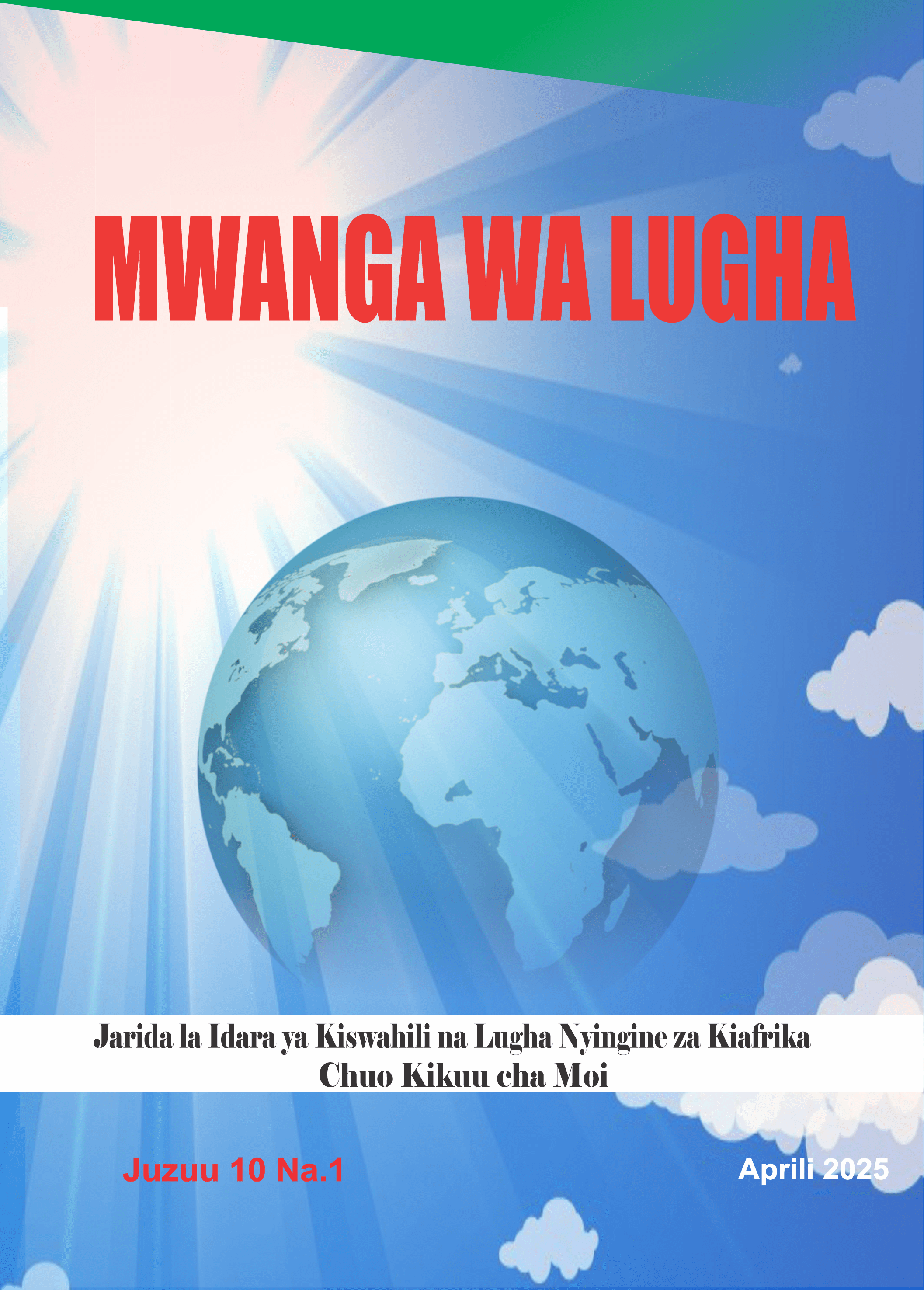Revitalizing Mother Languages
Culture, Globalization and Technology
Keywords:
Globalization, Mother Languages, Technology, RevitalizationAbstract
Globalization has paved the way for trade, culture sharing, research, development, communication, innovation, and the spread of technology. But while these and other benefits of globalization are often analyzed, little attention is paid to its impact on mother languages. The UN estimates that more than 50 percent of the languages spoken across the globe will disappear by 2100. Africa, in particular, is in danger of losing 250 languages out of the 600 currently in decline on the continent. Globalization is responsible for much of this language endangerment as it creates economic, political, and social conditions that promote the dominance of Western languages like English and French over local languages. This paper investigates the nature and extent of globalization’s impact on mother languages in Africa and forwards conditions that must be met to revive and preserve these languages. Using Memmi's Theory of Colonization, Freire's Theory of Pedagogy of the Oppressed, and Fisherman's Model for Language Revival, I argue that language endangerment is a product of previous colonizing policies that disenfranchised indigenous languages and cultures and that continues today as globalization. I posit that this endangerment poses a direct threat to the national and cultural identities of indigenous peoples. I ask and attempt tp answer three key questions: How does globalization facilitate language loss in Africa? How does this loss impact the social, cultural, and political structures of African peoples? And what steps can the continent take to revive its mother languages? In analyzing past works, I acknowledge that many language revitalization campaigns rely on technology to preserve and disseminate ‘sleeping’ languages. I, however, advance that a multifaceted approach involving new educational policies, decolonization, locally-driven research, and collaborative learning could produce better results. I therefore recommend that technology-focused revitalization efforts be combined with community engagement and policy changes to revitalize the languages, identities, and cultures of African people more effectively.
References
Bunyi, G. (1999). Rethinking the Place of African Indigenous Languages in African Education. International Journal of Educational Development, 10(4-5), pp. 337–350. https://doi.org/10.1016/S0738-0593(99)00034-6
Ebadi, B. (2018, June 30). Technology Alone Cannot Preserve Endangered Languages. CIGI Online. https://www.cigionline.org/articles/technology-alone-cant-preserve-endangered-languages/
Freire, P. (1990). Pedagogy of the Oppressed. New York: Continuum.
Garcia, I. (2020, April 15). How Technology Helps Preserve Endangered Indigenous Languages. YES! Magazine. https://www.yesmagazine.org/social-justice/2020/04/15/technology-indigenous-languages
Getahun, Z. (2019). Negative Impact of Globalization on Indigenous Cultures: The Case of Salale Oromo, Oromia Regional State, Ethiopia. Journal of Cultural and Social Anthropology, 1(2), 28–36. https://doi.org/ 10.22259/2642-8237.0102005
Herrera, M. I. H. (2022). The Use of Technologies in Language Revitalization Projects: Exploring Identities. Journal of Global Indigeneity 6(1), 1-17. https://www.journalofglobalindigeneity.com
ITU News. (2022, August 9). How AI is Helping Revitalize Indigenous Languages. ITU. https://www.itu.int/hub/2022/08/ai-indigenous-languages-maori-te-reo/
Kearney, A. (2016). Exploring the Impact of Globalization on Linguistic Culture. Honors Theses. 2725. https://scholarworks.wmich.edu/honors_theses/2725
Lin, S. M. (2021). The Impact of Globalization and Localization on Language Policies: The Example of Taiwan. American International Journal of Humanities and Social Science, 7(2), 1-13.
Maikanti, S., Chukwu, A., & Valentina, M. (2021). Globalization as a Factor for Language Endangerment: Nigerian Indigenous Languages in Focus. Malaysian Journal of Social Sciences and Humanities (MJSSH), 6(9), 521-527. https://doi.org/10.47405/mjssh.v6i9.1055
Makokha, J. K. (2021, July 3). Why Ngugi wa Thiong’o Champions Mother Tongue. The Star. https://www.the-star.co.ke/sasa/books/2021-07-03-why-ngugi-wa-thiongo-champions-mother-tongue/
Memmi, A. (1991). The Colonizer and the Colonized. Boston: Beacon Press. ISBN 9780807003015
Mercer, P. (2013, January 21). Lost Australian Language Revived in Australia. BBC News. http://www.bbc.com/news/world-asia-20066624
Ngulube, P. (2012). Revitalizing and Preserving Endangered Indigenous Languages in South Africa through Writing and Publishing. Department of Interdisciplinary Research of the College of Graduate Studies, University of South Africa. https://sajlis.journals.ac.za/
United Nations. (2023, February 10). Why Indigenous Languages Matter: The International Decade on Indigenous Languages 2022–2032. UN DESA Policy Brief No. 151 https://www.un.org/development/desa/dpad/wp-content/uploads/sites/45/publication/PB151.pdf
Viader, J. K. (2020, May 3). Globalization and its Impact on Indigenous Cultures. Lead the Change. https://leadthechange.bard.edu/blog/globalization-and-its-impact-on-indigenous-cultures
Villa, D. J. (2002). Integrating Technology into Minority Language Preservation and Teaching Efforts: An Inside Job. Language Learning & Technology, 6(2), n2. https://doi.org/10125/25163

